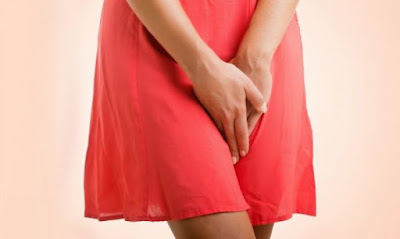What is interstitial cystitis?
Interstitial cystitis (IC) is a chronic, rare and very painful form of bladder irritation. Other names are bladder pain syndrome (BPS) and the painful bladder syndrome. Nine out of ten patients are women.
The symptoms appear in an IC that of cystitis: frequent urge to urinate, frequent urination and pain in the lower abdomen. However, in an IC, there is no cystitis; Antibiotics help than either.
IC can cause social and psychological problems. People with IC for example, are constantly asking where they can go to the toilet. They often sleep poorly because they frequent urination. And they have chronic pain. Therefore they suffer from insecurity and depression.
IC is not curable, but there are treatments to reduce symptoms such as medications, bladder washes or surgery.
What causes interstitial cystitis?
The cause of interstitial cystitis (IC) is not known. Researchers think that any of these things can be:
- The bladder is allergic. Perhaps the bladder allergic reactions to certain substances in the urine.
- The bladder has a protective wall mucus. Maybe that does not work well. Therefore all kinds of substances in the urine irritate your bladder.
- IC may be an autoimmune disease. In an autoimmune disease is the immune system's own body. When IC is that the bladder. As a result, the bladder is chronically inflamed.
- The bladder nerves provide wrong signals. The brains tell you that you have bladder pain, but in the bladder itself is found no obvious cause.
What are the signs and symptoms of interstitial cystitis?
The symptoms of interstitial cystitis (IC) resemble those of a bladder infection. The difference is that there are at cystitis bacteria in the urine. When IC is not so. Well, you have a constant sense of urgency and need to urinate frequently, even at night. You also have pain in your lower abdomen, bladder, pelvis or vagina. Scrotum and penis in men can be painful. The pain may extend into your back, groin or thighs. The pain is often worse than the one period of the other.
Sometimes it's just a bad feeling; other times you feel an excruciating pain. The pain gets worse when your bladder is fuller. Urination relieves pain and gives a sense of relief.
Interstitial cystitis diagnosis
If the doctor suspects you have interstitial cystitis (IC), it can do different investigations to figure this out.
In women is an internal research. The doctor looks at whether there are other causes for the complaints, such as an inflammation of the lining of the vagina, abnormalities of the labia or bulges to the urethra. Further examines the doctor your urine to see if you do not have an infection by bacteria or bladder cancer.
To confirm the diagnosis, the doctor may do a cystoscopy. In such an examination, she looks through a tube into the bladder. It may be that during this research your bladder filled with water. That research is called hydrodistentie. It is important that the cystoscopy under anesthesia. You then have less charge and the doctor may well see if your mucous membrane changes after your bladder is filled with water.
Finally, the doctor sometimes a piece of tissue from the bladder wall (a biopsy). Can they see or you do not have another bladder disease. They can also see how serious the infection is. but a biopsy is not always necessary to diagnose IC.
For many women, the symptoms are more intense just before menstruation. This is probably due to the influence of sex steroids on the bladder.
Both men and women may have pain during sex. Sometimes it is even impossible to have sex.
Treatment for interstitial cystitis
There is no treatment interstitial cystitis (IC) can be cured. Usually the condition chronic. You have periods of more suffering and periods of less suffering. You can do something about the complaints of IC. There are several possibilities.
First your doctor will try to reduce your symptoms with medication. Drugs used include antihistamines (for, among other things, allergic reactions) or antidepressants (analgesic and sedative).
If the drugs do not help enough his bladder rinses a possibility. Your bladder is filled with water where drugs have been added. In any case, this usually helps temporarily. You can once every four to six weeks a bladder flush.
Is your bladder very much narrowed, then he can be stretched. You will then be given an anesthetic and a number of hours your bladder is filled with a liquid. This helps in many people a few months.
The doctor may also botulinum toxin (Botox) into your bladder.
The pain is untenable and nothing helps? Then may need surgery. Your bladder and/or ureters are then taken away and you get a urine stoma.
IC is a persistent disease, but it can also be very lessens. After three to ten years reduces the pain often and people do not so much to pee.

